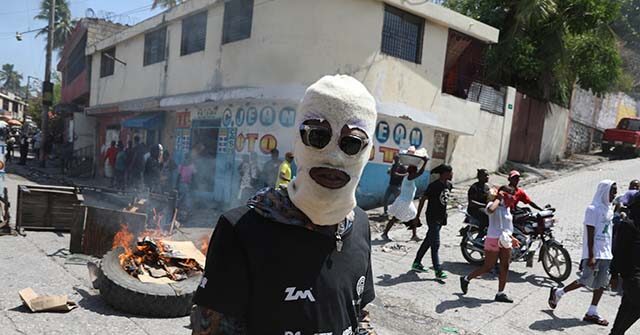The situation in Haiti remains dire, as reported by the United Nations Integrated Office in Haiti (BINUH), which highlighted a troubling escalation in gang violence. The nation’s security environment has deteriorated further, marked by gangs expanding their territorial assaults beyond their existing areas of control. Maria Isabel Salvador, the BINUH director, revealed to the U.N. Security Council that the number of displaced persons has surged by 22%, reflecting a broader crisis rooted in escalating violence and political instability that has transformed prior hopes into deep-seated concerns. The continuing security challenges point to a fragile environment wherein residents are increasingly subjected to brutal attacks, heightening the urgency of intervention measures.
A significant example of this escalating violence was the catastrophic gang assault in Pont-Sonde on October 3, where 115 civilians lost their lives. This tragedy was reportedly a revenge attack against police forces by gangs seeking to retaliate for the death of their members. Similarly, in the town of Arcahaie, gangs perpetuated gruesome acts by executing entire families and disposing of their bodies in mass graves, extending the cruel reign of local warlords. Such events underscore the alarming trends of a growing disregard for human life, where gangs aim to instill fear and tighten their grip on local populations, challenging any semblance of order in the country.
The rapid proliferation of gang activities is straining the already limited capacities of the Haitian National Police (HNP) and the small contingent of foreign officers sent by Kenya. According to Salvador, the chaos has overwhelmed national security forces, allowing gang leaders to perpetuate their cycle of terror unchallenged. Although several nations have promised to send over 3,000 peacekeeping troops to Haiti, only a few hundred have arrived thus far. The ineffectiveness of the Kenyan officers is a point of contention, with their only notable operation involving a temporary recapture of Ganthier, which the gang retook shortly after their departure. This situation has incited skepticism about the effectiveness of international interventions aimed at restoring stability.
The plight of vulnerable populations, particularly women and children, has intensified alongside the increasing gang violence. Catherine Russell from the U.N. Children’s Fund (UNICEF) reported that sexual violence is being wielded as a strategic weapon by gangs to instill compliance within communities. Statistics suggest that up to half of the individuals exploited by these gangs are children, highlighting a gruesome reality where many are forcibly conscripted as child soldiers or held in servitude. According to Rosy Auguste Ducena from Haiti’s National Human Rights Defense Network, gang rape is disturbingly used as a means of oppression in this violent conflict, constituting a significant threat to civilians.
Moreover, rampant corruption among high-ranking Haitian officials complicates the situation further. Many officials reportedly engage in siphoning funds from the national treasury, diverting some of these resources to gangs that, in turn, purchase weapons to sustain their criminal enterprises. This corruption not only erodes public trust but also contributes to an environment where gangs can thrive. The U.N. estimates a staggering increase in displacement, indicating that around 4,200 individuals were uprooted from their homes in just one week, joining the broader figure of 700,000 displaced since the assassination of President Jovenel Moise in July 2021.
In a response to the escalating crisis, President Gary Conille has redirected police and military resources to bolster defenses in the government-controlled neighborhood of Solino, a haven for refugees currently threatened by attacks from gang coalitions, including one known as Viv Ansanm. Conille also announced the anticipated arrival of additional troops from the Bahamas to further support Haitian police efforts. The situation in Haiti, thus, remains one of escalating violence, political dysfunction, and humanitarian distress, necessitating urgent attention and coordinated action to address both the immediate and underlying factors contributing to this entrenched crisis.

